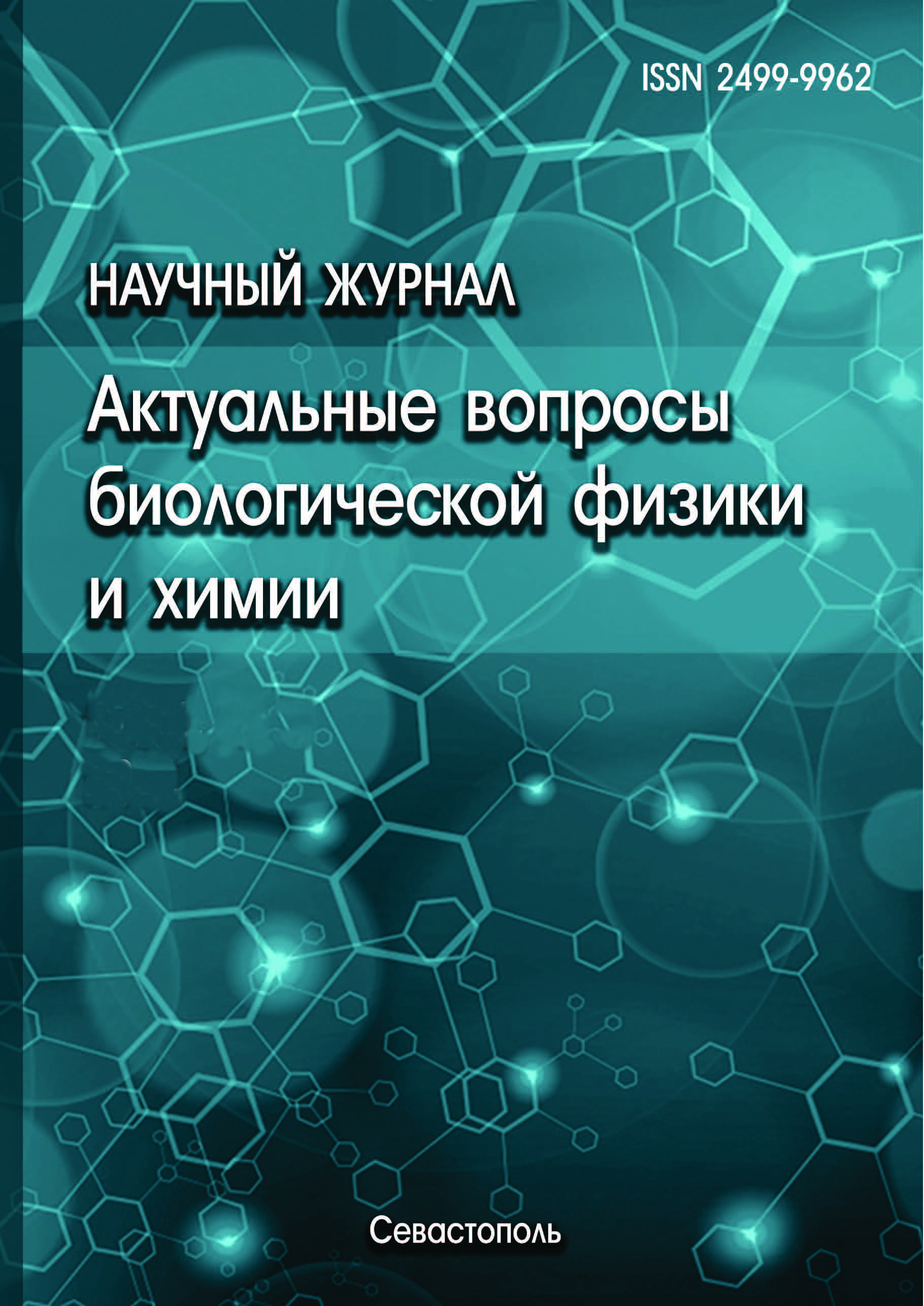Chelyabinsk, Chelyabinsk, Russian Federation
This workconsiders the possibility of an analog transition between the microcosm of quantum mechanics and the macrocosm of biology, where the most important process is the relationship of a biological species (BS) with its ecological niche (EN). In the first workpart the hypothesis is put forward, that the EN acts as an analogue of a potential well in quantum mechanics, which makes it possible to apply the tools of the latter. Then the stable BS state, as a system structure, corresponds to the eigenvalues of some wave function that oscillates in the EN (like an electron in an atom). At the same time, it is possible to distinguish the linear and nonlinear stages of these oscillations. The evolution nonlinear part, when the BS enters a chaotic stage of existence, can be determined by both external changes in the EN and internal causes at the genome level.The first reasons can be called Darwinian, the second — Lamarckian. In general, the BS eigenvalues are determined by boundary conditions (based on the Hutchinson cube): generalized the EN geometry and other environmental factors. It is shown how the basic concepts of quantum mechanics such as superposition, tunneling through a potential barrier, the Pauli principleare manifest themselves in biology. The latter corresponds to Gause's law in biology: only one species with certain ecological needs can live inside one ecological niche. In the second work part possible evolutionary correlation effects are discussed between the potential well, determined by the corresponding EN, and the potential well, which affects the conformational (energy) genome state of the BS. It is assumed that a change in the EN transforms the informational genome status through natural selection. On the other hand, and a change in the genome topology of the individuals can eventually to change the species whole and lead to the transformation of its niche.
ecological niche, biological species, Gause's law, quantum mechanics, wave equation, eigenfunction, potential well, boundary conditions, nonlinear oscillator, tunneling, evolution, genome
1. Frankl V. Man in search of meaning. Moscow: Progress, 1990, 368 p. (In Russ.) EDN: https://elibrary.ru/YQCMMA
2. Ozersky P.V. On the formalization of the concept of the ecological niche of Elton-Odum. The history of the issue. Functional morphology, ecology and life cycles of animals. Moscow: Scientific Works of the Herzen State Pedagogical University, 2013, vol. 13, no. 1, pp. 55-68. (In Russ.) EDN: https://elibrary.ru/URVXNA
3. Landau L.D., Lifshits E.M. Quantum mechanics (non-relativistic theory). Moscow: Nauka, 1989, 768 p. (In Russ.)
4. Shnol S.E. The cosmophysical nature of the idea of the form of histograms constructed from the results of measurements of processes of different nature. Metaphysics. Century XXI. Almanac. M.: BINOM. Laboratory of Knowledge, 2007, iss. 2, pp. 284-320. (In Russ.)
5. Panchelyuga V.A., Panchelyuga M.S. The Mach principle and the universal spectrum of periods: complementary fractal distributions as a consequence of rational and irrational relations between parts of an integral system. Metaphysics. Journal, 2021, no. 2 (40), pp. 39-56. (In Russ.)
6. Schrodinger E.What is life from the point of physicsview? M.: RIMIS, 2015, 176 p. (In Russ.)
7. Ashcroft N., Mermin N. Solid State Physics. Moscow: 2013, 459 p. (In Russ.)
8. Riznichenko G. Yu., Rubin A. B. Biophysical dynamics of production processes. Moscow-Izhevsk: 2004, 464 p. (In Russ.) EDN: https://elibrary.ru/QCTCHB
9. Romanovsky Yu.M., Stepanova N.V., Chernavsky D.S. Mathematical modeling in biophysics. Moscow-Izhevsk: Institute of Computer Research, 2003, 402 p. (In Russ.)
10. Ivanitsky G. R. XXI century: what is life from the point of physics view? Successes of physical sciences, 2010, vol. 180, no. 4, pp. 339-369. (In Russ.) DOI: https://doi.org/10.3367/UFNr.0180.201004a.0337; EDN: https://elibrary.ru/LKFKBH
11. Zeldovich B.Ya. Impedance and parametric excitation of oscillators. Successes of physical sciences, 2008, vol. 178, no. 5, pp. 489-510. (In Russ.) EDN: https://elibrary.ru/ILGEJL
12. Zimmer K. Parasite - the king of nature: The secret world of the most dangerous creatures on Earth. Moscow: Alpinanon-fiction, 2017, 362 p. (In Russ.)
13. Strigin M.B. Analytical and synthetic stages of the evolution of arbitrary systems: ontological features and characteristics. A modern scientist, 2018, no. 8, pp. 31-39. (In Russ.)
14. Chomsky N. A talking man. Evolution and language. St. Petersburg: Piter, 2018, 304 p. (In Russ.)
15. Arnold V. I. Theory of catastrophes. M.: LENAND, 2016, 136 p. (InRuss.)
16. Gall Ya.M. David Lack: two versions of speciation, either from neutralism to adaptationism. Vavilov Journal of Genetics and Breeding, 2014, vol. 18, no. 3, pp. 585-598. (In Russ.) EDN: https://elibrary.ru/SXXZQT
17. Bergson A. Creative evolution. M.: Academic project, 2015, 320 p. (In Russ.)
18. Markov A. Humanevolution. Neurons and soul. M.: Publishing house ACT: CORPUS, 2018, 512 p. (InRuss.)
19. Prigozhin I. Order from chaos: a new dialogue between man and nature. Moscow: Editorial URSS, 2014, 304 p. (In Russ.)










